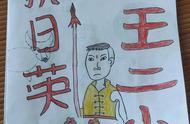2005年T4
第一段
Americans no longer expect public figures, whether in speech or in writing, to commandthe English language with skill and gift. Nor do they aspire to such command themselves. In his latest book, Doing Our Own Thing: The Degradation of language and Music and Why We Should Like, Care, John McWhorter, a linguist and controversialist of mixedliberal and conservative views, sees the triumph of 1960s counter-culture as responsible for the decline of formal English.
单词&词组
- figure (出现17次)n.图形,轮廓;人物;v.计算;预期
- command [kəˈmænd](出现3次)n/v.命令,管辖,指挥,掌握;[僻义]知识运用能力,值得,鸟瞰
- Degradation [ˌdeɡrəˈdeɪʃn] 堕落; 落泊,潦倒(的境况); 毁坏,恶化(过程)
- controversialistˌ[kɔntrə\'və:ʃəlist] 善辩者。要记住这个词根 controversial(出现5次)adj.引起争议的,有争议的
- counter-culture (反主流文化的)
- aspire to 渴望做某事(这个to接名词时为介词,接be动词时候为不定式)
本段翻译
无论在演讲还是在写作上,美国人都不再期望公众人物在英语语言的使用上展现出技能与天赋;而公众人物自身也不渴望有掌握它们的能力。约翰——不仅是语言学家,而且是以为混杂着自由派和保守派观点的善辩者——在其新书《做我们自己的事情:语言和音乐的退化,以及为什么我们应该,呃,在意》中认为,20世纪60年代反文化运动的胜利是导致正式英语衰退的主要原因。
第二段
Blaming the permissive 1960s is nothing new, but this is not yet another criticismagainst the decline in education. Mr. McWhorter’s academic speciality is language history and change, and he sees the gradual disappearance of “whom”, for example, to be natural and no more regrettable than the loss of the case-endings of Old English.
单词&词组
- permissive [pərˈmɪsɪv] adj.放纵的,
- criticism [ˈkrɪtɪsɪzəm](出现15次)n.评论,批评,批判,指责
- regrettable[rɪˈɡretəbl] 惋惜的,遗憾的
- case [keɪs](常用词)n.案例,病例[僻义](语法中的)格
本段翻译
责怪纵容放纵的20世纪60年代并不新鲜,但是这次却不是对教育退步的又一场批判。麦荷特先生的学术专长是语言的历史和变迁。举例来说,他认为“whom”一词的逐渐消失是自然的,和古英语中的词格尾缀的消失是一样根本没有什么可遗憾的。
第三段
But the cult of the authentic and the personal, “doing our own thing”, has spelt the death of formal speech, writing, poetry and music. While even the modestly educated sought an elevated tone when they put pen to paper before the 1960s, even the most well regarded writing since then has sought to capture spoken English on the page. Equally, in poetry, the highly personal, performative genre is the only form that could claim realliveliness. In both oral and written English, talking is triumphing over speaking,spontaneity over craft.
单词&词组
- cult [kʌlt](常用词)狂热,时尚,崇拜
- authentic [ɔːˈθentɪk] (出现2次)adj.正宗的;[僻义]adj.可靠的,真实的
- spelt [spelt](出现1次)spell的过去式,拼写;[僻义]v.招致,导致;意味着
- elevated [ˈelɪveɪtid] (出现3次)提高的
- capture [ˈkæptʃər](出现6次)捕捉,抢占;n.俘虏;[僻义]充分体现,准确表达
- performative [pərˈfɔːrmətɪv]adj.表述行为的
- genre [ʒɑːnrə](出现一次)n.类型,流派
- claim(出现23次)v.声称,索取,获取;n.声明,所有权,索款;[僻义]引起注意
- liveliness 生动的
- spontaneity [ˌspɑːntəˈneɪəti] n.又内心所驱动的行为
- craft [kræft](出现6次)n.工艺,手艺,飞机;v.精心制作
- triumphing over (胜过)
本段翻译
然而,对真实和个性的狂热推崇,即“做我们自己的事情”,已经导致了正式的演讲、写作、诗歌及音乐的消亡。在20世纪60年代以前,就算是受教育不太多的人在下笔时都会寻求一种高格调;而在那之后,即使是最受好评的文章也力求在书面上体现口语化。同样,在诗歌方面,机具个性化与表现力的风格是唯一能够体现真实生动的形式。无论是在口语还是在书面语中,随意言谈胜过了正式的讲话,即兴发挥也胜过精心制作。
第四段
Illustrated with an entertaining array of examples from both high and low culture, the trend that Mr. McWhorter documents is unmistakable. But it is less clear, to take the question of his subtitle, why we should, like, care. As a linguist, he acknowledges that all varieties of human language, including non-standard ones like Black English, can be powerfully expressive—there exists no language or dialect in the world that cannotconvey complex ideas. He is not arguing, as many do, that we can no longer think straight because we do not talk proper.
单词&词组
- illustrated [ˈɪləstreɪtɪd](出现5次)说明,解释;给。。。加插图,列举
- acknowledge [əkˈnɑːlɪdʒ](出现8次)v.承认,告知收到,致意
- dialect [ˈdaɪəlekt](出现1次)方言
- convey [kənˈveɪ](出现6次)传达,传送
- an array of(一系列)
- think straight(表达准确)
- talk proper(规范的表达)
本段翻译
麦荷特先生从雅俗文化中列举了大量有趣的例子,从而说明他所记录的趋势是正确的,但就书中副标题提出的问题“为什么我们应该,呃,在意”,答案却不够明确。作为语言学家,麦荷特承认人类各种各样的语言,包括黑人英语这样的非标准语言,都具有强大的表达力——世上没有传达不了复杂思想的方言或是语言。与其他大多数人不同,麦荷特先生并没有坚持认为“我们说话方式不规范就会让我们无法准确的思考”。
第五段
Russians have a deep love for their own language and carry large chunks of memorized poetry in their heads, while Italian politicians tend to elaborate speech that would seem old-fashioned to most English-speakers. Mr. McWhorter acknowledges that formal language is not strictly necessary, and proposes no radical education reforms—he is really grieving over the loss of something beautiful more than useful. We now take our English “on paper plates instead of china”. A shame, perhaps, but probably aninevitable one.
单词&词组
- chunk [tʃʌŋk] (常用词)大块,大段
- elaborate [ɪˈlæbəreɪt](出现5次)详尽说明,精心制作;adj.详细的,复杂的;精心制作的
- radical [ˈrædɪkl](出现9次)adj.根本的,彻底的激进的;n.激进分子
- inevitable [ɪnˈevɪtəbl](出现9次)adj.不可避免的;n。必然发生的事
- grieving over(为。。。哀叹)
本段翻译
俄罗斯人深爱自己的语言,他们的大脑中深印着大段的诗歌;而意大利的政客则往往精心准备演讲,尽管这在大多数讲英语的人们看来已经过时了。麦荷特先生承认正式语言并非绝对的不可或缺,他也没有提议要进行彻底的教育改革——他其实只是为那些美好多过实用的事物的消逝而哀叹。我们现在用的“纸盘”而非“瓷盘”盛着我们的英语大餐。这或许令人遗憾,但可能也是无法避免的。
【5道题目】

今天的这篇有点难懂,应该是4篇里最难的,句子有点难懂,晦涩,大家要细心的精度。
答案:BDABC
本文来自给力考研资料










